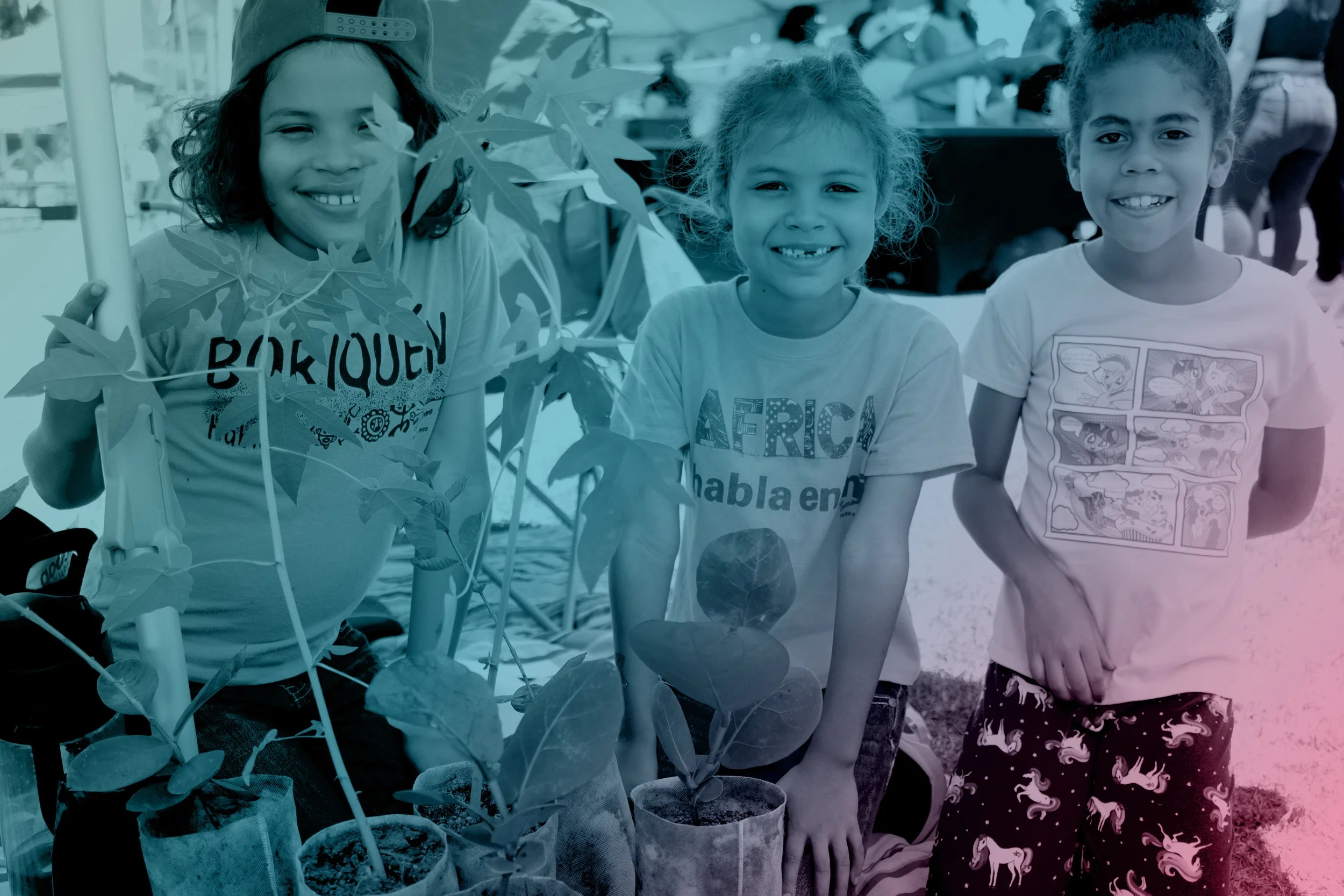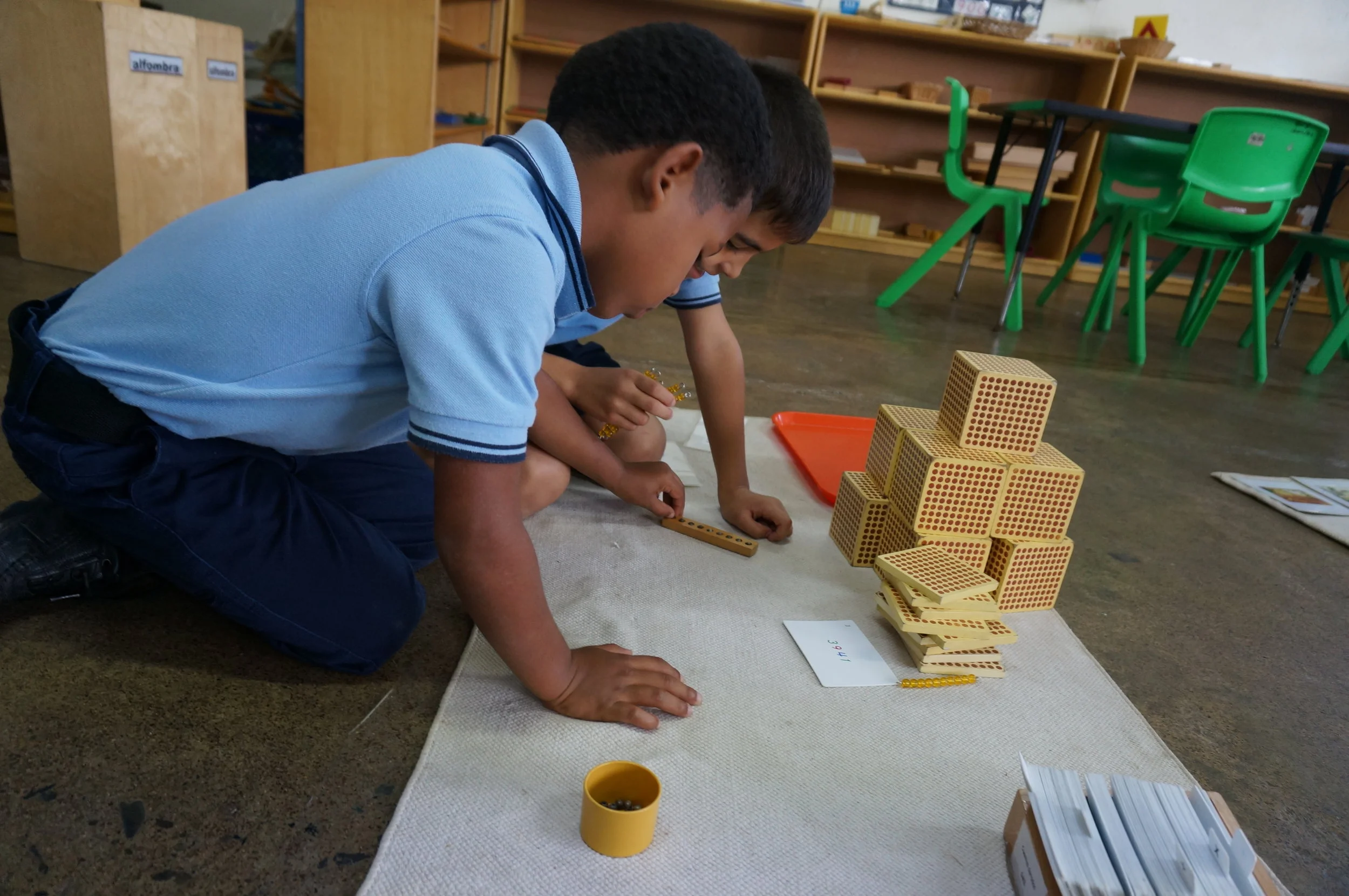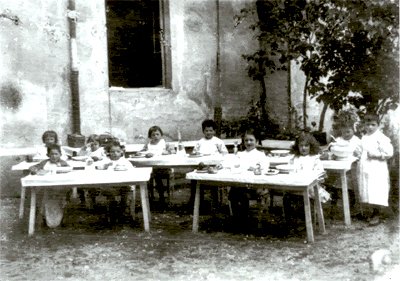Our purpose:
Transform
Instituto Nueva Escuela (INE) accompanies Puerto Rican school communities that have opted for the public Montessori model as an active agent to achieve social transformation.
Mission
To accompany, train and serve the communities in Puerto Rico through Montessori public education for the development of prepared beings that contribute to the common good.
Vision 2025
Being in 100 school communities in Puerto Rico that offer a public Montessori education of excellence.
INE's Contribution
INE is dedicated to implementing the Montessori philosophy and methodology in the public schools of Puerto Rico. Before 1994, the Montessori method was only accessible to high-income families and in private schools. In just over 10 years, INE has accompanied more than 52 schools and communities in their educational and social transformation: cultivating a culture of peace , developing a model of participatory governance of parents and community leaders, and showing good academic and social results for our children and youth.
INE's Model
As a 501c3 non-profit organization, INE works to expand Montessori education in Puerto Rico by accompanying public schools in their transformation . Our organization trains and certifies guides (teachers) and assistants in Montessori pedagogy and provides leadership, support and technical assistance to public schools and sister communities. Our partnerships with foundations, the local government, and the private sector guarantee a high-quality Montessori public education. INE aims to strengthen community-based school governance while working with new schools that are being incorporated into the project.
The Montessori philosophy and methodology is recognized for achieving comprehensive, intellectual, social and spiritual development in the boy, girl and/or young person. Developed by Dr. Maria Montessori, the methodology has the boy and girl as its center. It is based on scientific observations from birth to adulthood.
With over 100 years of success in diverse cultures throughout the world, this method has been favored by high-profile personalities as an effective way to achieve world peace.
The basic principle of Montessori philosophy and education is that each boy and girl carries within him or her the qualities of the person he or she will become. To develop these physical, intellectual, and spiritual powers to their fullest, they must enjoy freedom – a freedom that is achieved through work, order, and self-discipline.
Casa dei Bambini. San Lorenzo, Roma. 1907
Montessori education began in 1907, when Maria Montessori opened the Casa dei Bambini, or Children's House, in a low-income district of Rome. Its philosophy and methodology, unique at the time, attracted the attention of educators worldwide, and in the following decades, Montessori schools opened in Europe, South America, and North America, and eventually, on every continent except Antarctica.
Maria Montessori developed what she called the “prepared environment.” It has an order and structure that encourages boys and girls to develop at their own pace, according to their own abilities. It is a non-competitive environment during their first school years. Dr. Montessori, understanding the need for the acquisition of a basic skill before its use in a competitive learning situation said: “Never let a child risk failure until he has a reasonable opportunity to achieve success.”
Prepared environment, S.U. Pasto school, Aibonito P.R.
The stage between three and six years of age is when children best learn the basic rules of human behavior. These years can be spent constructively “civilizing” children, freeing them through the acquisition of good manners and habits to take their place in the culture in which they live. Children who have experienced the benefit of the Montessori environment are more likely to devote themselves to the development of their intellectual faculties at an older age.
Dr. Montessori recognized that the only valid impetus for learning is the child's self-motivation. Children move towards learning. The guide prepares the environment, directs the activity, and offers the work as each child is ready.








